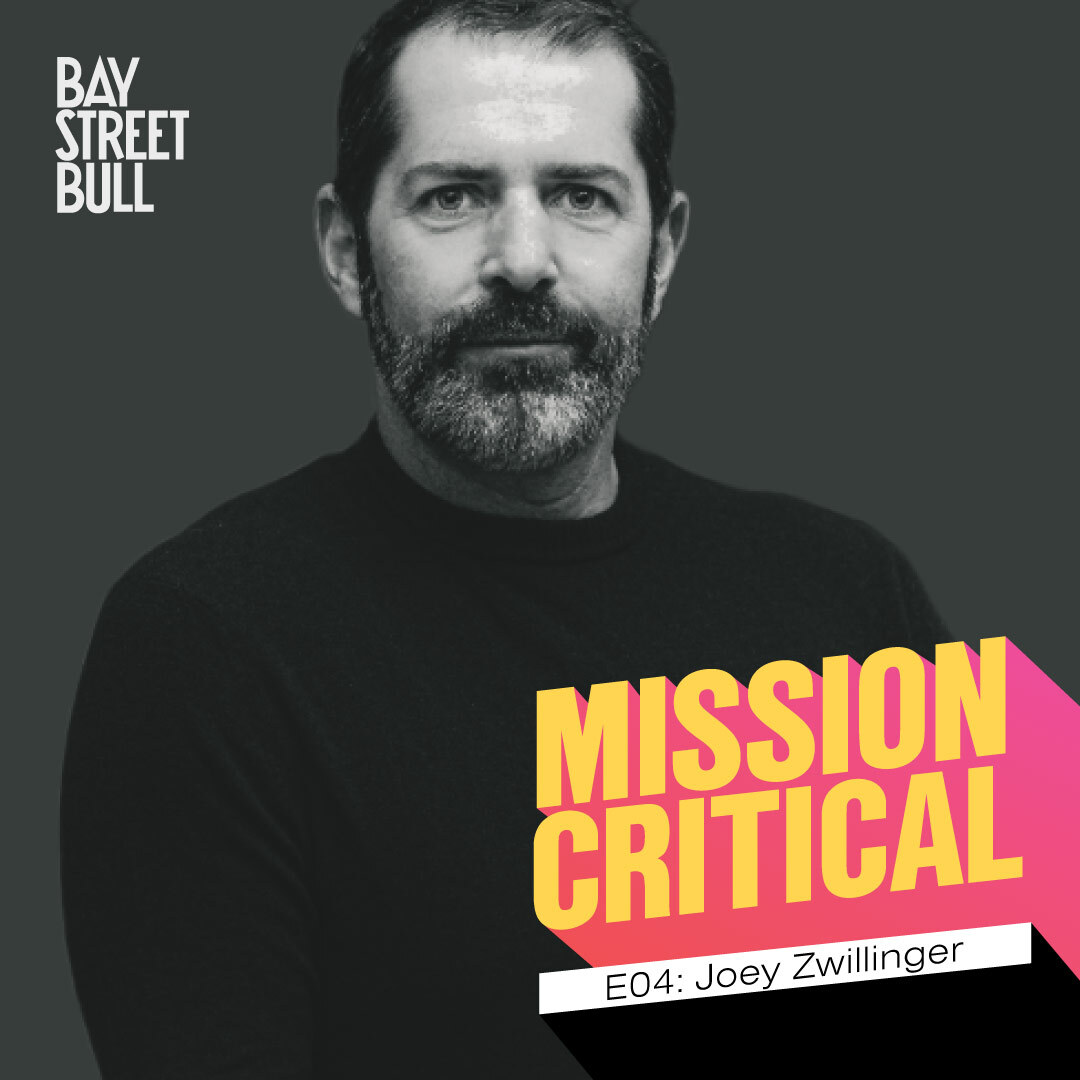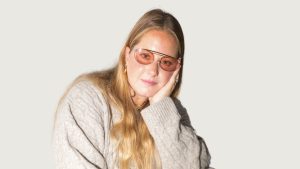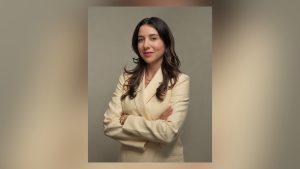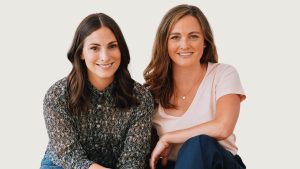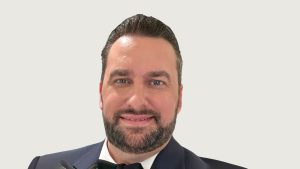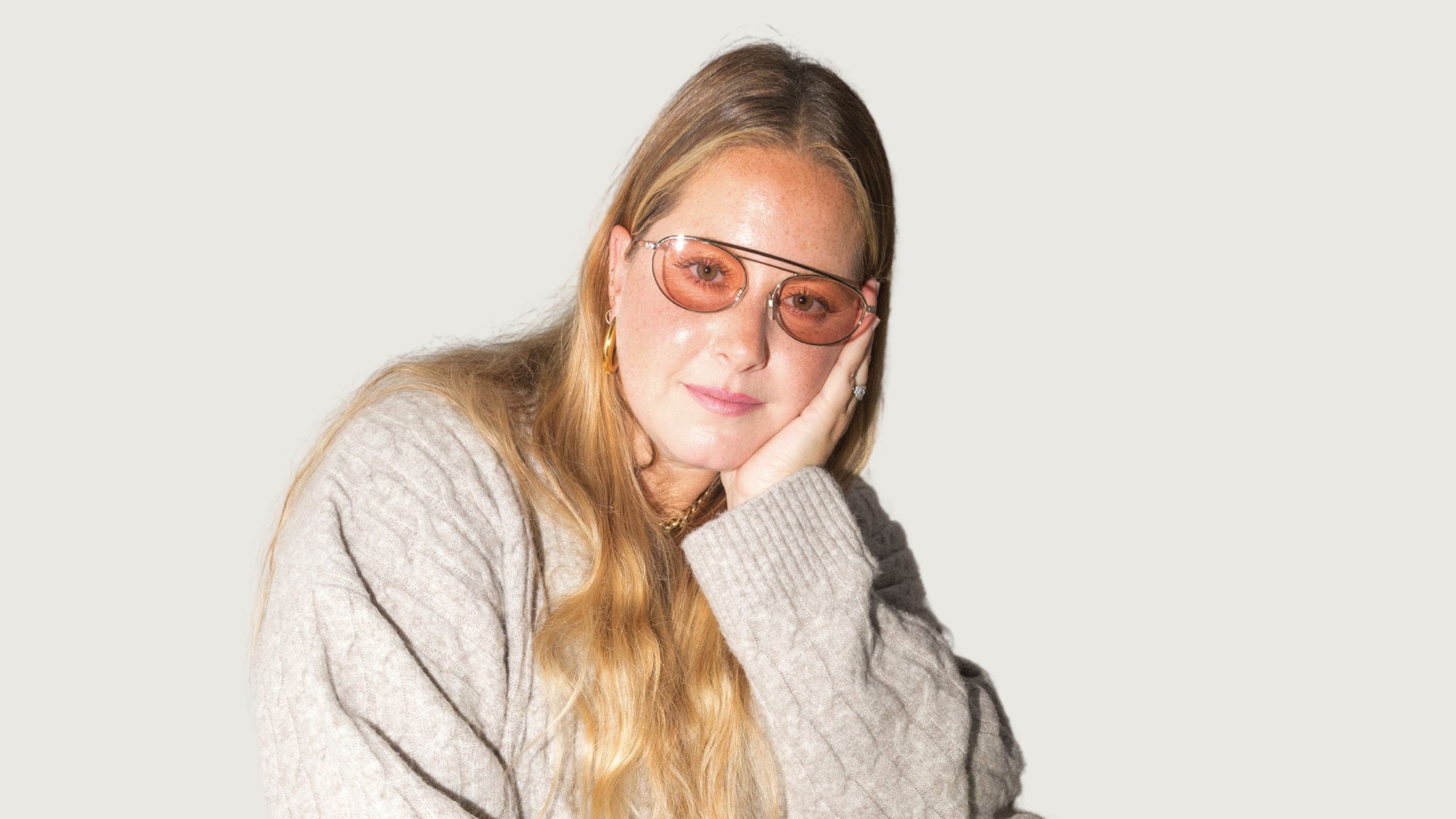Joey Zwillinger is the CEO and co-founder of Allbirds, a San Francisco-based material innovation company that specializes in making the world’s most comfortable shoes (and now, apparel!) More importantly, they’re a company on a mission to tackle what Joey calls the biggest problem of our lifetime: climate change. In this episode, Joey and Lance talk about sustainability, activism, and whether companies should pay for their pollution.
KEY HIGHLIGHTS
[3:29] Allbirds was created to make better things in a better way.
[6:53] What does it mean to create “apparel with purpose”? For Joey and his team at Allbirds, it’s about creating something that can help consumers tackle climate change.
[9:35] How do you maintain and protect your values as you grow into a billion-dollar company? It actually gets easier, in Joey’s experience.
[12:03] T-shirts made out of crustaceans and shoes made from sugarcane? Where do you even begin to look if you want to be innovative with your materials?
[13:30] Why make the technology behind your innovation open-source? It’s about collaborating and collective action if you truly want progress.
[16:09] How important is perfection to progress?
[18:46] Why is it so hard to define sustainability? If we can’t define it, how are we to tackle it?
[23:02] As a company, the key to tackling social issues is to maintain authenticity.
[25:50] Enacting change means more than putting the onus on consumers. It means engaging with legislators to keep businesses accountable.
Listen to the episode below or your platform (Apple, Spotify, etc.) of choice.
INTERVIEW
[INTRO]
“What I would aspire to be is when we make a product, it’s so good that it’s sucking carbon dioxide out of the atmosphere as we make it, and people have to pay us in order to be a carbon sink for them. And so we’re actually an antidote to their pollution. That’s a future that really inspires me and gets me out of bed every morning.”
Welcome to Mission Critical, a podcast about the big picture, the purpose, and the values that drive today’s most game-changing companies, entrepreneurs, and leaders. I’m your host Lance Chung, Editor-in-Chief of Bay Street Bull, and I’ll be introducing you to a group of brilliant minds who are making an impact on the world and forging the path ahead. While they may all be very different from one another, the question remains the same: What’s your mission?
According to a 2019 survey conducted by IPSOS, approximately 69 percent of consumers around the world have changed the products and services they use because of their concern about climate change. The tides are changing, and people are voting with their dollars in companies that not only make a good product but also align with their values. In a way, these companies are stewards of our future, and the way we support them lays down the bricks for the road ahead—which brings me to today’s guest.
Joey Zwillinger is the CEO and co-founder of Allbirds, a San Francisco-based company that specializes in making the world’s most comfortable shoes (and now, apparel!) But more importantly, they’re a company on a mission to tackle what Joey calls the biggest problem of our lifetime: climate change. In their view, sustainability, comfort, and beautiful design don’t have to be mutually exclusive. In fact, they go hand in hand.
In a matter of a few short years, Allbirds has pioneered the use of innovative materials, like eucalyptus tree fibers for shoe soles, and grown into a billion-dollar company. One, might I add, that hasn’t lost sight of its values along the way. Throughout their growth, they’ve continued to keep themselves accountable to their mission through the use of sustainable materials and even became the first fashion brand to label all of their products with a carbon footprint score, right there out in the open for consumers to see. It’s a challenge that they’ve raised to their industry counterparts to do better—to create better things, in a better way.
From his bioengineering roots to becoming one of today’s most inspiring business leaders, Joey (alongside his co-founder Tim Brown) is proving that business can be a powerful vehicle for progress. They are changing the world, and they’re inviting everyone to join them along for the ride.
Lance Chung: Joey, it’s so great to be chatting again. I think the last time that we spoke, you were in Toronto and we did a pub crawl throughout the city to celebrate Allbirds launching in Canada. And now we’re here, not on a pub crawl, unfortunately, but chatting again no less, and just in a different way. How have you been?
Joey Zwillinger: I’ve been navigating a pandemic, as we all have. So, I’ve been really good, all things considered as it takes on a more prominent meaning these days than it used to.
Lance Chung: I am so happy to be speaking with you again because I love the brand, I love the product, but most importantly, I love what you guys stand for. When I think of a mission-driven company, yours is one of the first that comes to mind. And so, usually, I end my interviews by asking this, but I think this time I’d like to lead by asking,what is your mission and what is the big picture for yourself and for Allbirds as a company?
Joey Zwillinger: Our mission, we have cemented it in writing, so I can tell you what it is. It’s to make better things in a better way. And what that means is we will never compromise on the quality of the things that we make, because they have to be fantastic for what the consumer, what customers want from it. And we need to do it in a better way, which means from our perspective, not extracting from the earth in the process of manufacturing it. Our goal as a company is to look more like a tree that spits out oxygen as it sucks in carbon dioxide. So, net positive for the planet versus what you typically think of a company who makes things, which is extractive on the earth. That’s our ambition and that’s our goal, and we hold ourselves accountable to that and everything that we do.
Lance Chung: It’s a perfect segue because I have a lot that I want to talk to you about today. I want to talk about your growth as a company, sustainability, social corporate responsibility, politics—the whole shebang. So, let’s start with the product first. Allbirds started with shoes and has since diversified its product offering to basically outfit you from head to toe, more or less, you know, you’ve got a variety of different shoes, underwear, socks, and now apparel, which is very exciting. Is there a reason behind the progression and evolution of your product diversity? Why did you start with footwear first?
Joey Zwillinger: I guess I’ll give you two of the core reasons. First is that footwear is very difficult to make. It is an item that is manufactured using hard pieces that are then engineered, and molded, then they’re connected to soft pieces like textiles on the tops of the shoes. And they are connected by very high technical adhesives and a whole bunch of other materials that have to come together to make something work. And then you think about the tolerance, like if you’re a millimeter off on making that shoe, a millimeter off, and these are products that touch a lot of hands throughout the manufacturing process, one millimeter, and that thing is scrapped. It doesn’t fit, it doesn’t work. And so, not only is it an incredibly difficult product to engineer, but to scale that up to millions of pairs is quite an industrial feat. So we want to try and bite off the biggest challenge first, because we always knew that we want it to be something bigger and broader than just shoes, but we figured that if we could get the trust of our customer early and do it in a product that is so challenging, like a shoe is, that it fits across styles that is biomechanically sound, comfortable, helps you perform better, that we could then extend into apparel, which, not to take away from the challenge of textile science and apparel, but it’s an easier thing to manufacture a garment than it is to put together a shoe.
And so we felt like we could extend in that really nicely. So that’s one critical element that I think is going to pay dividends for us. The second one is that there is no vertical retailer in shoes, and the entire industry is built around a wholesale distribution model, which means that a large portion of the retail price goes to retailers, themselves. We wanted to change that and give all that value that’s normally reserved for department stores right back to the customer. And we do that by investing much more heavily in high quality and natural materials that then give that back in a more affordable price for people. And so that is an interesting competitive differentiator and when you connect our ethos on innovation and sustainability with that distribution model, you get something kind of special. So that’s why we started with that one.
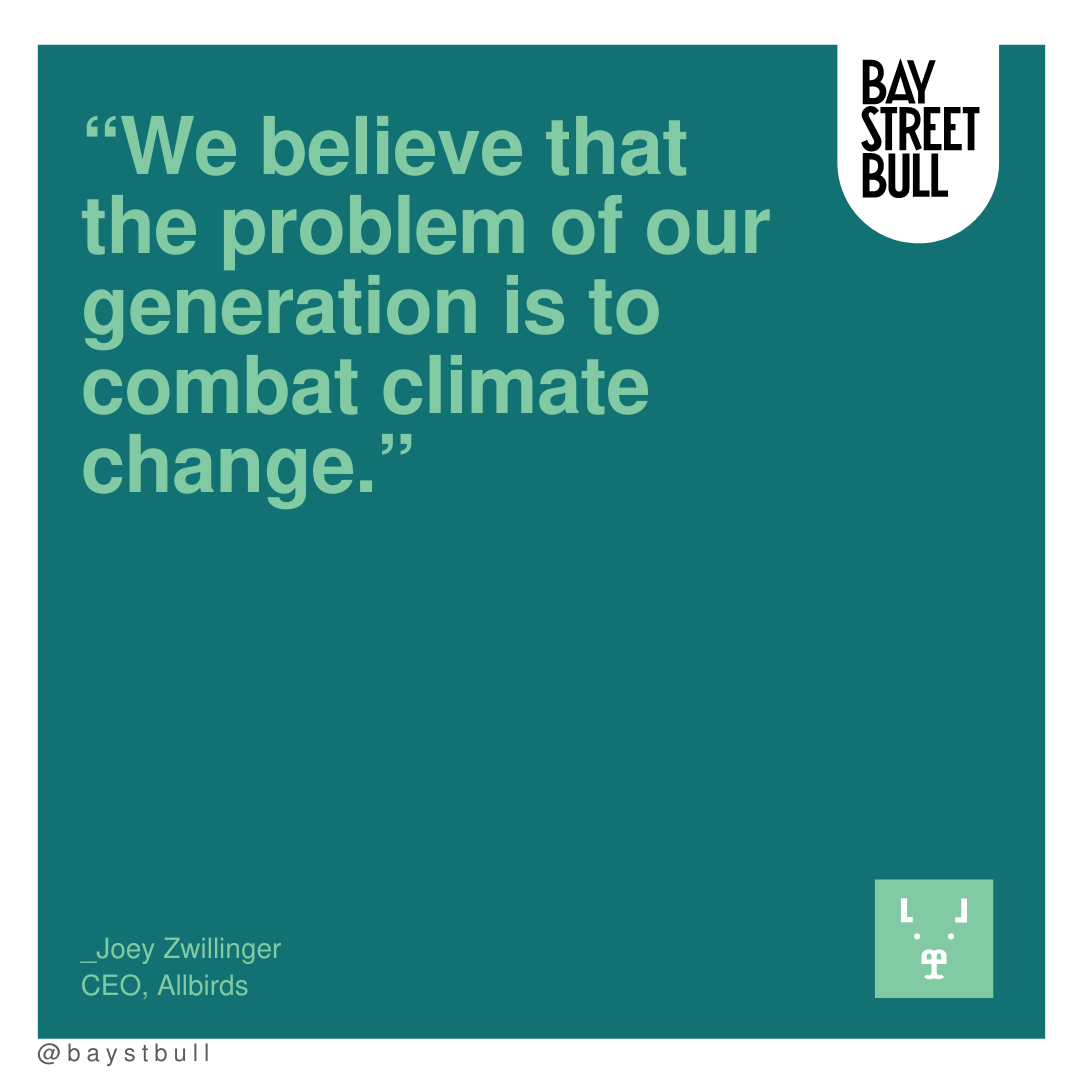

Lance Chung: The clothing is the newest launch and, I was reading through some of the materials, and it focuses on “apparel with purpose.” What does that mean to you, and what does that mean when you as a brand put that on your labeling and commit to that?
Joey Zwillinger: We believe that the problem of our generation, the problem of our time, is to combat climate change. And if we don’t do that, the rest of the issues we face, it’s like if you think about it from an analogy of the human body, climate change is like our heart. If we don’t have… If our planet warms too much and it is no longer a place that we can inhabit, we’ll cease to exist. And so, we want to be very mindful of all of the things related to the environment, but if the heart stops beating, you know, if your knee hurts, it’s less of an important issue than being able to manage that. So, being a small company, we really want to focus on that as our message to consumers and orient our innovation process to help that mission so we try to then put that purpose and accountability right back on the company and show consumers and help educate them to help them make a decision based on the environment as well on climate change, specifically. And we do that by labeling the carbon impact.
If we think about our view that companies should pay for their pollution, we are showing exactly what the pollution is, and then we pay for it by carbon offsets. And that procreates a financial incentive amongst a whole host of other things we do within a climate task force at our company to drive down to net-zero of emissions. And we are holding ourselves accountable to that. And then eventually, as I mentioned, we want to look more like a tree and be actually positive for the climate. So that’s our goal, and that’s why we put it and slap it right on the packaging.
Lance Chung: Now I want to get to how you guys measure and offset carbon in a minute, but with all this in mind, and the perspective that you have, and the approach that you guys take as a company, would you consider yourselves a fashion-focused sustainability brand or a sustainability-focused fashion brand? Where does the emphasis lie when it comes to making major decisions as a company?
Joey Zwillinger: I’ll give you option C as my answer. I think we are an innovation company first and foremost and our innovations are enabled by sustainable materials. And then that allows us to create things that are differentiated and have what we think is a great, sophisticated, and elevated style component to it. But these are not chasing trends. We can’t be a fashion company that is always onto the next thing and onto the next seasonal cycle because we take too much time, honestly, to develop these materials and put them into finished products that we could never keep up with the trends with the path that we have. It’s sort of the antidote to fast fashion. And that almost precludes us from being a fashion-first company, as you put it.
Lance Chung: And so, correct me if I’m wrong, but Allbirds was founded in 2016 and has since become a billion-dollar company. And so, that is, in and of itself, incredible because it’s only been a matter of a few years. So you’ve grown a lot and very quickly. And when a company is able to build so quickly, how do you maintain your values and integrity, your mission as you scale up? How do you make sure that that’s always in sight?
Joey Zwillinger: Well, you know, I think it’s gotten easier, not harder. And I know that sounds a bit counterintuitive because I feel like underlying your question is a common misperception that once you get bigger and, maybe get more profit-focused or greedy, and the environment all of the sudden goes out the window, when and really in fact, for our company, what we’ve been able to do is weave our mission right into the product. So, literally it’s woven or knit right in there. And the materials that we’re using help us make a better impact and also, we think, help us make more differentiated products and hence better business. So as we’ve grown up, what’s happened is now innovators in the ecosystem for materials, whether it’s textile, people, or yarns, or one of the innovations we launched in our tee shirt is this incredible first of the world innovation where we’ve extracted a byproduct of marine life. After crabs are harvested for food, the shells are leftover, and we can take an extract from that. We’ve worked with partners to put that into a yarn form, and it’s an incredible anti-microbial that then allows you to wash it less, reduces odour caused by bacteria as a result of it kind of similar to a silver essence and what that does without the extracted nature on the planet. And now those people are coming to us, and what’s so cool about that is now these people understand what we stand for, and they see that we’re big enough where the volume matters for them. So they come to us with these great ideas, and now we can actually be more of a curator than having to go and scout and hunt so deeply. Not to take away from the people that do that work for us, because it is a big part of what we do, but we’re seeing more opportunities come to us now, which is allowing us to actually accentuate our values rather than diminish them as we grow.
Lance Chung: And just kind of building on that, you’re a leader in materials innovation and proof that consumer companies can embrace sustainable materials if they want. You have materials made out of eucalyptus tree fiber, sugarcane, now marine shells, which is just mind blowing. Where does one even start when it comes to the research and understanding the types of innovation that’s possible? Where do you even begin?
Joey Zwillinger: It’s a big question. I guess on the one hand, I would say, where we start is the customer and so we really try to understand what our customers do on a daily life and what their changing behaviors are wanting of their apparel and footwear. What needs are changing as a result of their changing behaviours, and then map that right back to a product and some attributes that would work, and then go out and find that R&D that actually meets that need. And we constrain our R&D process to look at only natural innovations. So I’d say that’s one important way that we look to use R&D, and this type of R&D, but sometimes it happens the other way around, and sometimes technology is so good and so interesting that you can find items that come out the other way. You find items that solve a problem that you weren’t actually looking to solve from the outset because the technology is so cool. And that just kind of takes making sure you have people with a lot of expertise and the ability to digest complicated scientific topics and understand how significant and unique those are. And so that that’s not easy, right? I mean that’s having people that come from material science and deep science backgrounds, and we have a lot of people on staff that come from that background. I spent a good portion of my career in that field, and so that allows us to kind of do that dual-process customer, and also sometimes technology-first.
Lance Chung: And you also made the technology behind SweetFoam, which is a type of bioplastic derived from sugarcane, I believe, open-source for other companies to use. Why was that something that was important for you to do?
Joey Zwillinger: Okay, so why would we share something like that? The core problem we’re trying to solve is climate change, and that is a huge problem. And no matter how big we ever get, our volume of materials is going to always be a drop in the bucket and is never going to actually solve the problem by ourselves. And so we are firm believers in collective action to solve this problem. Now, I think some of the storytelling and some of what we do will be replicated by many others, that will help significantly, but what a better way to catalyze change? And if we make an innovation and we’re able to share that with the entire industry, by the way, that SweetFoam material that you’re referencing? It’s a residue from sugarcane processing that we’ve converted into a really comfortable foam for the soles of shoes. That’s the most ubiquitous component using the entire sneaker industry. If everyone switched to that, the planet would be in such a better place, because it’s actually a carbon-negative material that sucks more carbon dioxide out of the atmosphere than it takes to create that material, which is pretty amazing. So there’s this amazing altruistic planet benefit. And we make sure that we get a better cost to make our shoes as the price of that material comes down. So there’s this pragmatic benefit to0, and this is very far upstream. This is the first molecules as they’re produced to make a material.
It’s very rare that that’s going to be something so proprietary that we’re going to win as a result in business terms because of that. It’s what we do downstream of that where we add other things in there, and we compound it, and we design it into a particular shape that’s geometrically sound for footwear and for running, and things like that. That’s where we win. And so the upstream part, let’s share that. Let’s get the business benefit and let’s get the global environmental benefit. That’s how we’ve done that and I think we’ve replicated that mentality with a partnership with Adidas, which is fairly uncommon place, is that you would collaborate with a competitor in our industry. So, that’s the mindset that we have to this, and it’s not always going to be true. Not every single material makes sense to do that, but we hope a lot do. And particularly when they make a big impact.
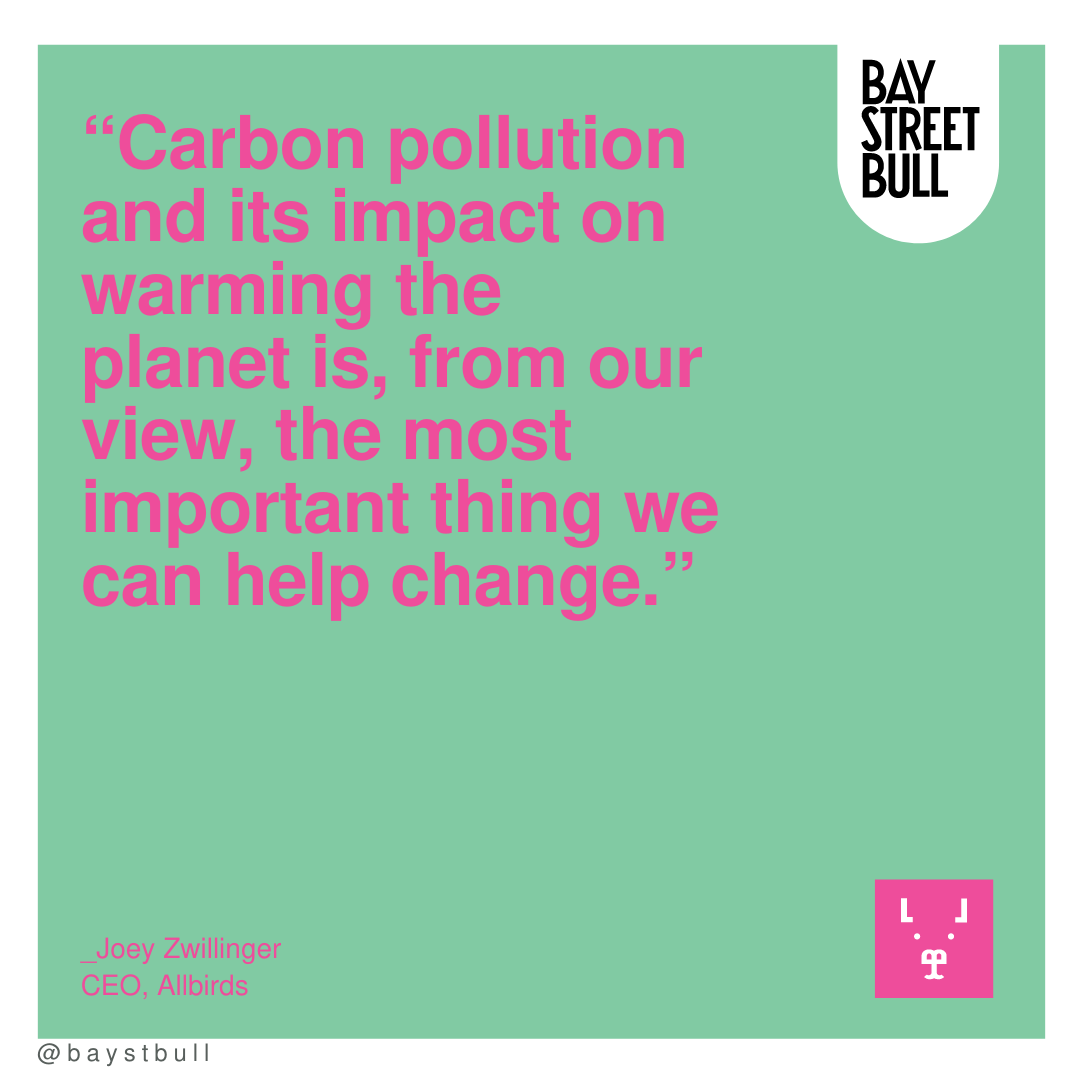

Lance Chung: It’s kind of this mentality around high tides raising all ships, and if more people have access to this technology and material, the better it’s going to be for the industry, overall. And the cheaper it is to manufacture and access that, and the better it will be for the environment. So there is both a business and an altruistic case for it.
I imagine this takes a lot of research and testing, and a lot of time that’s involved in perfecting this material and these technologies that you’re utilizing and harnessing. When it comes to progress and perfection as a company, where do you see yourselves falling on the scale and how important is perfection to progress in your business?
Joey Zwillinger: That’s a profoundly interesting question because I think historically perfection has gotten in the way of good progress in this field. When Tim [Brown] and I started Allbirds together, we looked at a lot of case studies of history of people doing things that were objectively great for the planet, and the shoes always sucked. No one cared, no one bought them. It was like this tiny little sideshow that companies produced. And in large part of it was because these companies tried to be perfect, and they could make 10 of them, and they cost a thousand dollars a pair. And it was like, they were ugly. Why’d you do that? You’ve got to meet people where they are. And so what we’ve tried to do is set an incredibly high bar and meet that bar, and that bar we strive to always improve it and it’s the best in the industry in our view. And we try to maintain that bar at that high level, from an environmental perspective, and then keep on pushing that bar higher. Every day we just work to make that higher. You asked me what the mission is to start this thing off. It’s better things in a better way. It’s not the best thing in the best way, it’s better things. That’s never achievable when you think about the construction of that mission statement, and that’s powerful from my perspective because it shows the humility with which we understand the problem to require. And that’s how we think about our products, our company, the way we do everything really. It’s about always trying to get better.
[Interlude]
Bioplastics made from sugarcane, t-shirts made from marine shells, sneakers made from eucalyptus fibers? It’s clear that mother nature has a rich bounty of materials for humans to use in a sustainable way if we are willing to be a little creative, think outside of the box, and innovate. These are just a few examples of material innovation that Joey and his team at Allbirds are pioneering, and challenging the rest of the industry to do the same. When Amazon started selling a very familiar type of woven wool sneaker in 2019, Joey and his co-founder Tim responded in an open letter to Jeff Bezos by inviting him to “please steal our approach to sustainability.” It was an invitation to use their open-source technology behind the sugarcane-derived SweetFoam in Allbirds’s products as a way to encourage other brands to join the sustainable movement.
But building a more sustainable world also means that we have to create new ways of defining sustainability, measuring it, and making sense of it. It’s something that Joey is trying to do with his team with their carbon footprint scorecard.
Lance Chung: Earlier this year, you wrote an op-ed for us, I think around Earth Day, where you discussed the sense of confusion around how we as a culture define and measure sustainability. It’s this kind of nebulous, catchall term that’s hard to define. Can you talk about how you define sustainability and also the carbon scorecard that you were talking about before?
Joey Zwillinger: Yeah, there’s a lot of dangerous implications of that truth. You walk down the street and say, what does sustainability mean to 10 people, and you’ll get 10 different answers. And, that’s a problem when you think about that term being exploited from a commercial perspective by brands that are clearly understanding that consumers want something that’s sustainable. And so they bastardize what that really means—they being large global brands that are consistently guilty of doing that. And so, what does it mean to us? Honestly it means all of those things to us too. Being sustainable, you have to be mindful of water disposal issues, chemicals that you use in your processing. It’s got to be societally [sic] sustainable in terms of your social costs and your manufacturing and supply chain, and also your carbon impact and carbon pollution. But, as I said, the fact that climate change is happening and it’s human-made, and we’re responsible for warming our planet. And if we don’t stop doing that, we’re on a glide path to something very terrible for our species. Let’s fix that one, because that is so existential and such an important question. We want to put the focus of our energy on that, will be mindful to the other hundred things that being sustainable means. And so I think what we’re really good stewards from a whole bunch of different avenues, however, carbon pollution and its impact on warming the planet is, from our view, the most important thing we can help change. And so we focus our energy on doing that, and that’s why you see our accountability for carbon pollution on our products labeled right there so people can see it, and people can use that as a decision making framework, whether they’d like to buy our product or someone else’s.
Lance Chung: It’s almost like a nutritional label, but for carbon. But my question around that is, it’s one thing to present the information and show it to a consumer and make that information available. But, it’s another thing for people to make sense of it and understand it. In the case of a nutritional label, do people understand the definition of what a calorie means? Or is what they understand, the definition of a calorie in relation to their daily intake? Is that what they understand? I guess in other words, how do we help make things easier for people to understand? And more importantly, how do we get people to care about understanding, and understanding these metrics and the impact, and knowing how to use that information and take the next step?
Joey Zwillinger: It’s tough, and I think that analogy is a strong one. I don’t think many people know what a calorie is a scientifically, but they certainly know that if you look at one that has a thousand calories and the same kind of item that has a hundred, you might elect to do the one that’s lower, if you were concerned about your intake of calories, depending on what you’re using it for. So there’s an easy barometer to understand, and that’s made clear for you as a consumer because it’s regulated. In the US, the FDA Food and Drug Administration requires labeling standards that create those benchmarks that then companies can innovate around. So, we would hope that something like that would happen, or hopefully enough brands volunteer and elect to do this kind of scorecard, so that it does become something that is as broadly understood. But until that happens, we’re going to do our part to educate and put context around that number when we display it on our website and other places that people can see that. We have context for how ours compares to the rest of the industry. We compare it on a product by product basis, and then we explain exactly what we do with that and how we offset that. So it’s a long-term educational process in the vacuum where you don’t have a mandated standard across product, which is unfortunate that we don’t have that because I do think the price on carbon and accountability for businesses is going off far, way down the path of solving this problem.
Lance Chung: And that is something that is missing in the conversations, a kind of a body to help standardize and make a sense of all these numbers in the way that we measure it and make that relatable to consumers. So, I guess that kind of takes me to my next point in talking about climate change. We’re in a really critical moment in time where a lot of very important discussions are intersecting and taking place, climate change being a big one of those. How important do you think it is for a company to take a stance on social issues? After all, social and political issues are woven together with business and often intersect. We can’t really see these things in silos. How do you think companies should take a stance on these things?
Joey Zwillinger: It’s a question that I’ve probably thought more about this year than previous years. There are so many different issues that have come up. And the way Tim and I have tried to lead Allbirds on a whole host of issues is to be authentic. And, we have a number of different stakeholders that we strive to do a great job for. One is our shareholders, so we’ve got to make a good business. One is our employees, who we have to make sure we provide them with things that make them fulfilled and grow, and also obviously compensate them appropriately. And, the other is the environment and there’s others. So, I think what we’ve tried to do is understand as a public benefit corporation, which is how we’re incorporated, it’s a structure that allows us to be more of a stakeholder-driven business versus a shareholder-only business.
We have named environmental conservation as our key focus. And within that, for us, as I mentioned a number of times here, climate change. So, let’s be really outspoken and focused on that issue. And when it comes to other issues that really are adjacent, or unrelated to our core focus and our core mission as a business, if they’re important to our employees, let’s address them and let’s address them for our employees, but let’s not necessarily conflate that with using the brand megaphone to solve those issues as well. And let’s not risk diluting what we’re here to accomplish by trying to have the voice on every issue. And so we try to be fairly disciplined about that and understand that consumers are smart, they’re reading lots of different things. Do they need to hear from Allbirds on the most recent social issue that’s unrelated to the environment from us? Probably not. And so that’s how we’ve tried to maintain some discipline.
[Interlude]
Business and politics do not exist in a vacuum. They are woven together in the fabric of our society and as such, both impact each other—for better or for worse. Now, it’s one thing for us as consumers to vote with our dollars. But consumers can’t be the only ones held accountable for our collective future. In order for real progress to happen, we need to cement these changes into policy, into the halls of government so that businesses can be held accountable and we can move forward with sustainable initiatives. I asked Joey about the importance of taking a stand as a business in these conversations around policy and legislature, and where he thinks profit and purpose intersect.
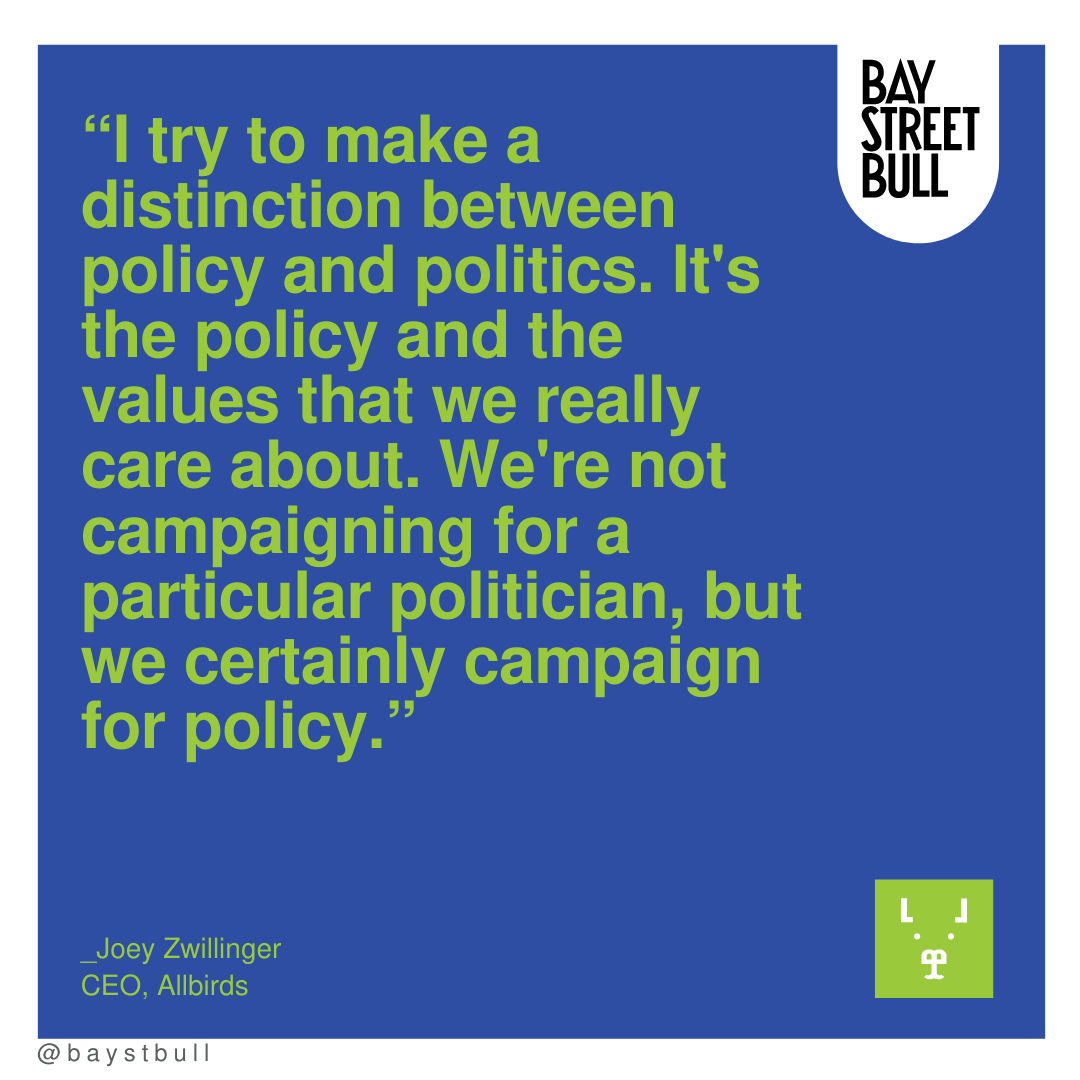

Lance Chung: I was browsing recently on LinkedIn and saw a post by Neil Blumenthal who, as you know, is the co-founder and co-CEO at Warby Parker. And he was talking about the Civic Alliance, which in an open letter from over a hundred CEOs, and founders, and executives, which I think you and your co-founder are a part of, urging people to vote in the 2020 US election. How do your conversations around climate change and sustainability intersect with politics, especially the current state of politics?
Joey Zwillinger: Yeah, we joined the Civic Alliance, which is encouraging and particularly, focused on actually allowing our employees to use their time, and compensate them, and pay them not for working, but for going to vote and man the polls if there’s a shortage, and things like that. So, we’re doing that for our employees and I think they’re pretty passionate about a lot of issues and we want to support them to do that. So that’s why we did that. And I would say the intersection of policy is incredibly important. There’s zero chance that we solve this thing without smart policy that’s designed to encourage innovation that decarbonizes and uses less energy from dirty fossil fuels. If we don’t have a policy designed to do that, there’s no chance we survive here. And so, where is our role? We think we can do a lot to storytell. In this moment in time, politicians are laggards. Sometimes they’re leaders, but right now on the environment, they are laggards and that is true globally, and it’s definitely true in the United States. So, making an emotional purchase, something that you do to express yourself like shoes or apparel, where we can drive the conversation, I think that can have a meaningful impact, but we do need to go beyond that. We do work and engage with politicians to hopefully drive meaningful change in policy. So, and I try to make a distinction between policy and politics. It’s the policy and the values that we really care about and we’re not out there campaigning for a particular politician, but we certainly campaign for policy and number one, two, and three is a price on carbon. And, I don’t even care what form that comes in, whether it’s cap and trade, or a carbon tax, or a border adjustment; whatever it is, just price the carbon, that’s a giant step forward for us,
Lance Chung: Yeah, because I do think that it’s one thing to put the onus on consumers to vote with their dollars and to kind of invest their dollars in companies that align with their social values. But, I think that only goes so far and it’s critical in order for meaningful change and progress to happen, these conversations around progress need to happen in the halls of government and need to happen with legislators, and need to be enacted into policy so that these things are actually enforced and there’s a change across the industry and the community in order to make that happen. So I guess, you know, when it comes to purpose and profit, where do you think those two intersect and how can they harmoniously benefit each other? Because I don’t think that they’re, you know, as we talk about these issues and talking about business as a conduit for having social discussions, they don’t have to be mutually exclusive. And this is an ongoing theme that I have with a lot of people that we’ve interviewed is that you can use business as a vessel to accelerate change and accelerate social values and everything without having to sacrifice business.
Joey Zwillinger: Yeah. I fully believe that. There’s two points I’d make there. One is, what’s enough profit? And when do you start to tip the balance? The way I think about that question is if our business can make something that consumers want and they buy our product at whatever price we mark it at and we manufacture, ship, and everything we do with our product, we pay for the pollution that happens as part of that process, that’s gonna limit the profit because we have a financial obligation to pay for that pollution. And we do that. So we’re a one hundred percent carbon-neutral company, and that limits our profit because we have a cost line item that we’ve self-imposed on our company. It’s like a self-imposed carbon tax. If every company had done that, or does do that, that will change the game.
That’s one aspect that I think is important. And then, you know, obviously that will incentivize businesses to innovate, to drive down carbon pollution and get it down to zero because like you do at any cost in your business, you want that to go down. So that’s one thing but the second thing is, if you focus on the impact that you’re trying to achieve for the environment and you blend that right into your business model, so as I said earlier, you know, if you make your product with the materials that you think advance your cause, or at least on the marginal basis, are much better than what the competition’s doing, when you steal share from your competition, you’re doing something better for the planet. And that is where you create a nice virtuous cycle there. That’s something that I would encourage, particularly if anyone’s thinking about starting their own business and doing something with a social purpose, that it’s not something that’s dependent on the body of the business, it is the body of the business. And that’s where I think that distinction becomes important and allows you to not sacrifice one when you’re achieving the other.
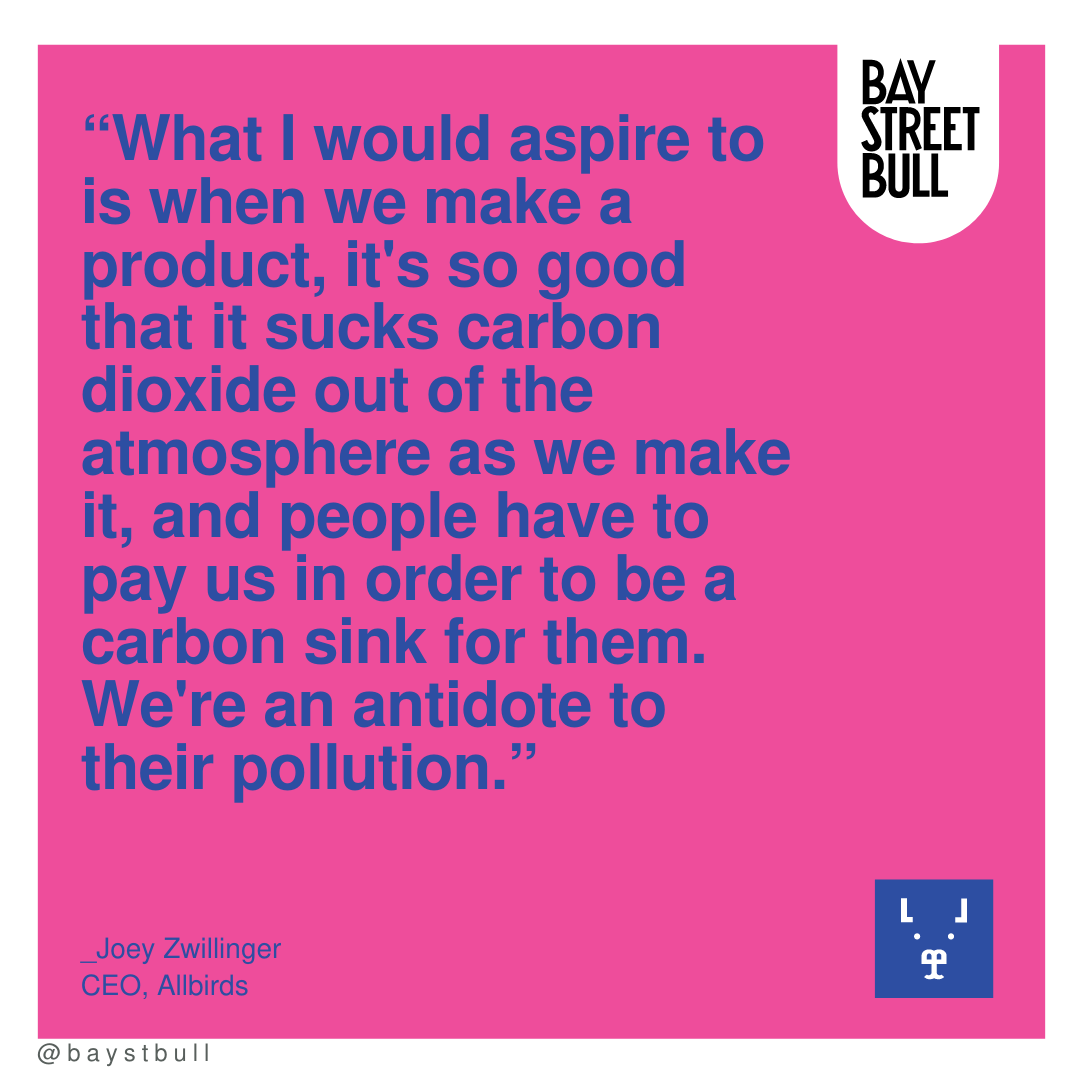

Lance Chung: Now earlier, I asked you about your mission. How will you know when you’ve accomplished it or when you’re ready to redefine and evolve that mission as you continue down your path?
Joey Zwillinger: Yeah. We’ll never get there because we can always be better. But I would say, where I aspire to get to, let’s picture a world where every business really does pay for its pollution. And every time that you emit a single gram of carbon dioxide, or methane, or any other greenhouse forming gas, you’ve got to pay for that. And where do you spend the money to pay for that? You have to finance projects that suck those gases out of the atmosphere, and as more and more companies have to pay for those projects, the cost of those are gonna go up. It’s just pure supply and demand, and economics. So, what I would aspire to be is when we make a product, it’s so good that it’s sucking carbon dioxide out of the atmosphere as we make it, and people have to pay us in order to be a carbon sink for them. And so we’re actually an antidote to their pollution. That’s a future that really inspires me and gets me out of bed every morning. And it’s hard, by the way, really hard. And we can’t do it on our own. We gotta have smart policy that interplays with our own internal efforts, but that’s what I want to be.
Lance Chung: And what has your experience been like getting people on board with your mission? How do you convince people to believe in it? Has it been difficult or have you been happily surprised?
Joey Zwillinger: It’s been surprisingly powerful, and what’s the most surprising aspect is people really think it’s quite unique and that’s a little saddening. You look at our most recent apparel launch and think about who’s trying to do this stuff with purpose and I don’t think people find a lot of alternatives for companies that are trying to do that, and I wish there were more, and I think there will be more because consumers always lead the way and consumers care more than they did five years ago and magnitudes higher than they did a decade ago. So, it is changing and I think a lot of companies will react to that and do the right thing; hopefully faster than we’re seeing progress on today. But it’s powerful, I mean, we have incredibly talented people that are at our business only because of our mission. If we didn’t have our mission, they could find a fantastic job and get paid a lot more money somewhere else.
Lance Chung: It’s about the bigger picture. Well, thank you so much for the chat today. It’s always great to talk with you and very inspiring and also very hopeful for the future, especially during times right now where you kind of have to take all the wins that you can get. And, you know, when you can speak with people who are very, not just optimistic but fighting for this kind of future, it gives you that extra push and I think these days we need to find as many of those extra pushes as we can. So thank you so much for the chat, and it was great to speak with you again. I hope you’ve been well, hopefully next time we chat, things will have calmed down and it’ll be over another beer or maybe even in wine country who knows.
Joey Zwillinger: Well I’m ready to try Canadian wine country now, and I’ll just say, thanks for having me and I am an optimist, but we gotta do something here and everyone listening can vote with their wallets and make the small changes and advocate. Thank you for giving us the platform to reach people and talk about what we’re doing and hopefully it inspires others.
[Outro]
I believe in what Joey is doing at Allbirds. I believe that you can have well-made products without destroying the environment. And most importantly, I believe that change needs to happen quickly, and we need to support the businesses who are leading the charge if we want to tackle important issues like climate change. If we can make shoes out of trees and garments out of crustaceans, then we can certainly challenge ourselves to reverse the damage we’ve inflicted on the environment and make real substantive change. As Joey and his team have proven, things beyond our imagination are possible if we just try and commit. So, why not dream big?


